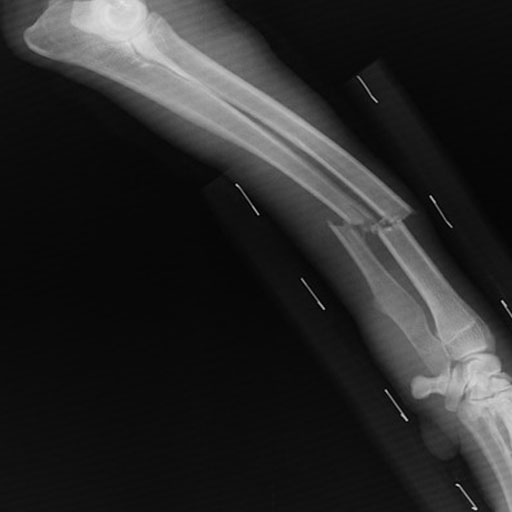Domain 1: Professional values and behaviours
Domain 2: Professional skills
- practical skills
- communication and interpersonal skills
- dealing with complexity and uncertainty
- clinical skills (history taking, diagnosis and medical management; consent; humane interventions; prescribing medicines safely; using medical devices safely; infection control and communicable disease)
Domain 3: Professional knowledge
- professional requirements
- national legislation
- the health service and healthcare systems in the four countries
Domain 5: Capabilities in leadership and teamworking
Domain 6: Capabilities in patient safety and quality improvement
- Safety
Domain 7: Capabilities in safeguarding vulnerable groups
Key ACCS capabilities
At completion of ACCS, a trainee will be:
- an effective member of the multidisciplinary trauma team
- able to assess, investigate and manage low energy injuries in stable patients
Key EM capabilities
At completion of Intermediate training a trainee will be able to:
- assess, investigate and manage patients attending with all injuries, regardless of complexity
- provide leadership of the Trauma Team
with Supervisor ‘on call’ from home for queries, able to provide directions via phone and able to attend the bedside if required to provide direct supervision
At completion of higher training a trainee will:
- be expert in assessment, investigation and initial management of patients attending with all injuries, regardless of complexity
- provide expert leadership of the Major Trauma Team
and would be able to manage with no supervisor involvement
ACCS descriptors
- Able to perform primary/secondary trauma survey
- Have examination skills required to identify/diagnose injury including vascular and neurological consequences
- Appropriately use investigations including XR/CT/US/MRI to confirm presence/consequences of injury
- Provide basic management of wounds, soft tissue injuries, fractures and dislocations including local anaesthetic techniques
- Provide safe use of basic local anaesthetic techniques e.g. digital nerve block, fascia iliaca block
- Use a range of techniques for wound closure (simple dressing, suturing, skin adhesive, steri-strips).
- Know the fundamentals of management of fractures and dislocations (slings, splints, basic plastering, manipulation as appropriate)
- Able to remove foreign bodies from the eye and ear
- Provide opportunistic advice on accident prevention
- Understand the pathophysiology and management of injury (including specific populations e.g. elderly, paediatric and pregnancy
- Understand the social/economic consequences of injury upon individuals
- Estimate a timeline of healing and give general and specific safety net advice on concerning features of potential complications
- Understand the importance of considering safeguarding of vulnerable patients
- Apply CT guidelines for suspected head and cervical spine injuries
- Provide initial care for patients with fractured neck of femur
- Understand the impact of injury on patients with markers of frailty
Intermediate & Higher Descriptors
All ACCS descriptors apply in intermediate and Higher training
- Manage all wounds, soft tissue injuries, fractures and dislocations including local anaesthetic techniques and sedation
- Provide calm and effective leadership in major trauma scenarios
- Participation in local/national audit and research into trauma care
- Supervision of a multi-disciplinary team in trauma care including Nurse Practitioners/ACPs
- Aware of Local/regional/national trauma protocols and guidelines
- Aware of Human factors/non-technical skills that affect performance of team caring for trauma patient
- Ability to predict likely prognosis/recovery time of injuries including potential complications
- Able to lead a multi-professional team brief after major trauma resuscitation
RCEM Learning resources
ATLS (more suited to core training)
ETC (in higher training)
‘Ring-fenced’ time spent in Minor injuries area in core/intermediate and higher training for experiential learning participation in trauma teams where possible throughout training (whilst in TUs/MTCs)
At least 6 months in designated MTC in HST with direct experience of TTL role with consultant review and feedback
Simulation based learning of trauma team leadership
In core training learners will be expected to seek feedback on the care of injured patients, including patients the frail elderly, and develop the fundamentals in this outcome. They will also be expected to be part of the major trauma team and receive feedback on their role.
Evidence to inform decisions include:
- ACCS App
- CbD
- ESLE
- FEG
- Mini-CEX
- MSF
Trainees would be expected to be given feedback on team leadership of multiply injured patients, under direct TTL guidance. They are also expected to continue to develop skills and decision making for injured patients, for example with cross sectional imaging.
Evidence to inform decisions include:
- ACCS App
- CbD
- ESLE
- FEG
- Mini-CEX
- MSF
Trainees will be expected to receive feedback on the management of increasingly complex major trauma cases, under direct TTL supervision.
Evidence to inform decisions include:
- ACCS App
- CbD
- ESLE
- FEG
- Mini-CEX
- MSF
Entrustment decisions
End of ACCS level 2b:
Trainees at the end of ACCS should be entrusted to participate in trauma resuscitations as member of trauma team directed by TTL. They should be also be able to take a reliable history, elicit key examination features, construct a differential diagnosis and carry out a management plan in patients who have sustained non-life threatening injuries within the ED. Observation in the workplace and WPBAs will support a faculty entrustment statement to this effect.
End of intermediate training level 3:
At the end of CT3 clinicians should be able to Act as TTL for trauma resuscitation cases with Consultant supervision within Resus. They should also be able to lead a Minors or Majors area of the ED providing advice to more junior trainees/ACPs/ENPs regarding care of injured patients with Consultant supervision available if required. Observation in the workplace, WPBAs (particularly ESLE), exam progress (OSCE) will support a faculty entrustment statement to this effect.
End of HST Level 4:
At the end of training, independent practitioners will be able to act as an independent Trauma Team Leader across the full range of complexity, supervise others, support the team in debrief and communicate with patients, relatives and love ones and other agencies in all circumstances.
RCEM examinations
MRCEM
SBA
OSCE
FRCEM
SBA
MSO




